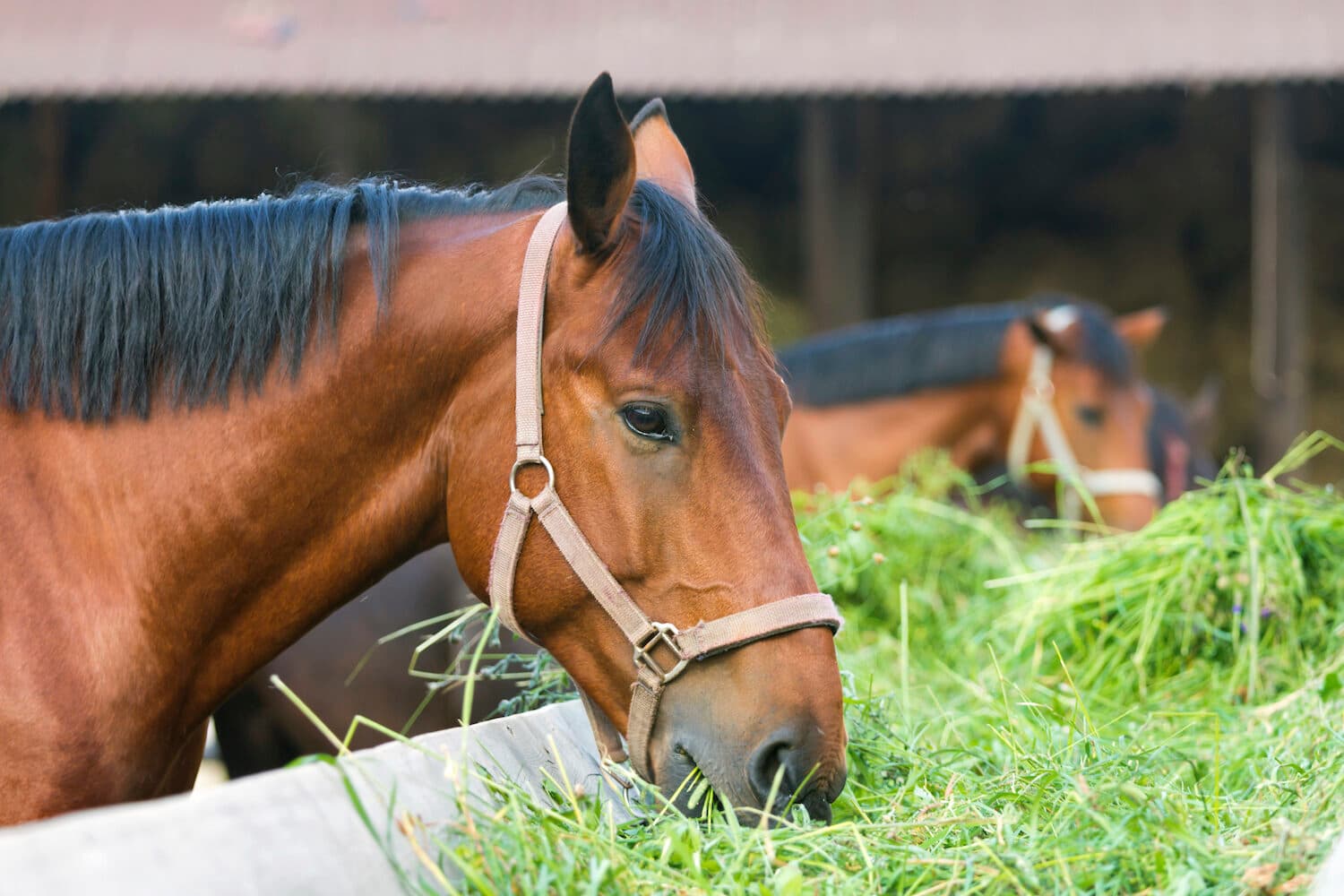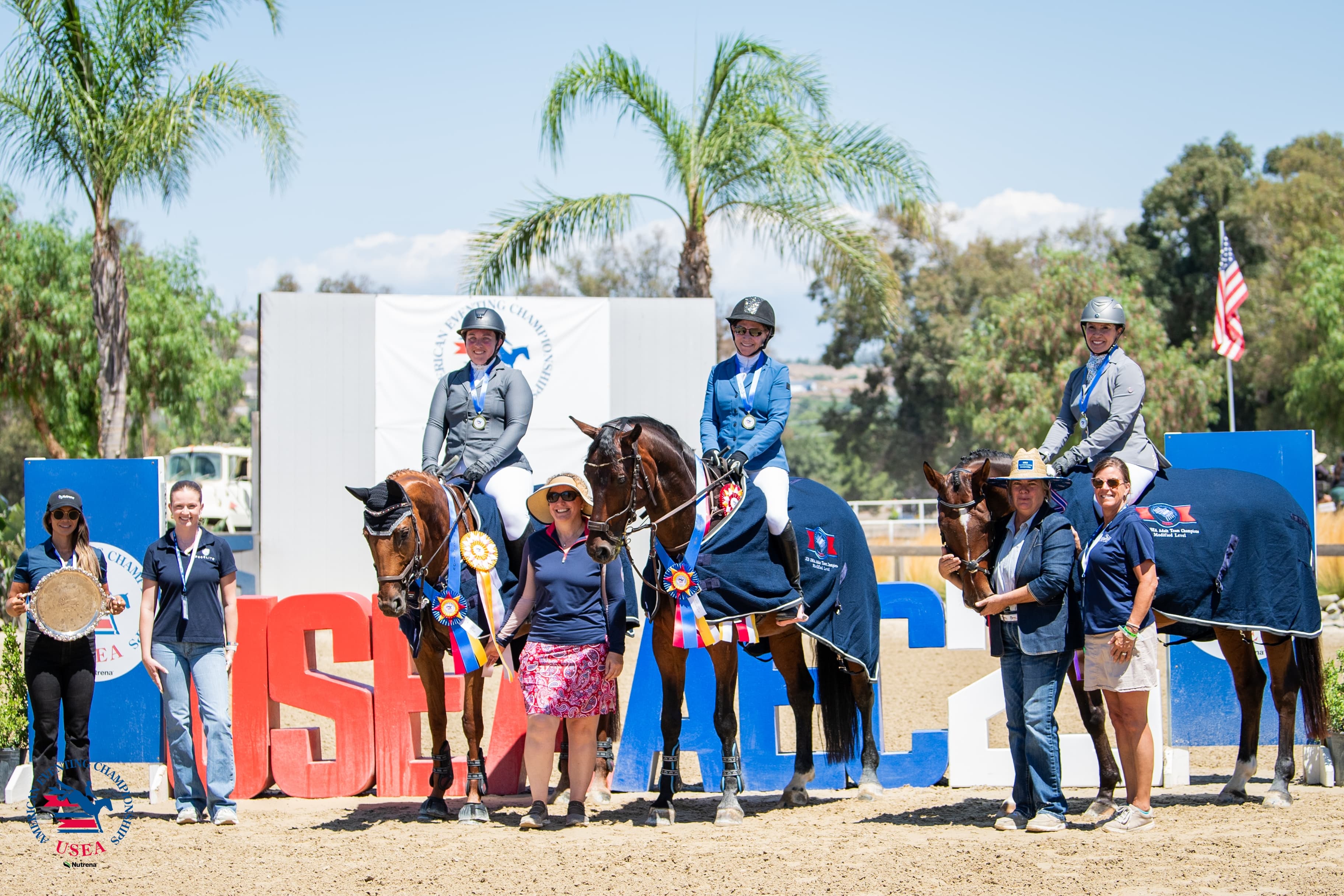What to Consider When Choosing Forage?

This educational article is brought to you by Standlee Hay Company, the Official Forage of the USEA.
Forage is the single most important ingredient in a horse’s diet, even compared to grains and supplements. We’ll help you understand which factors are important when evaluating forage for your horse.
There are several different types of plants that can be used for horse forage. Horses can also eat multiple types of forage assuming they’ve adapted properly. Forage can roughly be divided into 2 types: legumes and grasses. Legumes commonly include alfalfa and clover. Grasses consist of plants like timothy grass, orchard grass and blue grass. The trick is matching up which forage type best meets your four-legged friend’s needs. Performance horses, broodmares and horses needing to gain weight will all benefit from the additional calories and quality protein in legume or legume mix forages. On the other hand, easy keepers (horses with slower metabolisms) and those undergoing moderate to light exercise will do well on grass-based forages.
Forage comes in a variety of different physical forms including pellets, cubes, chopped (chaff) products and bales. Like forage types, a horse can digest multiple formats of forage without upsetting their system, assuming they’ve gradually adjusted. When it comes to forage format, there’s no universally “better” or “correct” option. Instead, you should be using formats that match your horse’s specific needs and eating habits.
No matter what format of forage you’re using, proper storage is crucial to keep your horse happy and healthy. Forage that’s kept outside without a cover runs the risk of being rained on. This can cause the forage to mold or become weather damaged, no matter what type of physical form it’s in.
Why not find out if you’re giving your horse the ideal forage to meet their needs? Click here to use Standlee’s Forage Finder, a special tool developed by our nutritional specialists to help you provide the best diet to your favorite four-legged friend.















